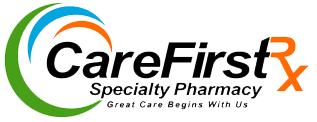What Is Compounding?
A compounding pharmacy creates many forms of prescription medications, with different delivery systems. That’s important because it makes medications available in forms that may be easier for some people to take.
For example, the prescribing physician may be able to order medications in the form of suppositories, emulsions, and eye, ear, and nose drops instead of pills or caplets. That gives the patient more options.
Compounding brings to mind a more traditional kind of pharmacy, one where a well-trained pharmacist uses a deep knowledge of medicine to formulate medications to order for each patient’s needs. These days, compounding pharmacies like CFS Pharmacy use state-of-the-art technology along with the latest pharmaceutical knowledge to create customized medications.
Even though most drugs are now produced via mass production, compounding is still important -- and growing in popularity, because mass-produced medications don’t necessarily come in the right dosage for each patient. A compounding pharmacist can produce the medication in a more precise and correct dosage, or combine it with other compatible medications that are also prescribed so it’s easier to administer.
Compounding is also ideal in situations where you need:
- Medications that are not available commercially.
- Medications that don’t include inactive ingredients you don’t want, such as sugar, dyes, alcohol or lactose.
- Medications in a dosage form that is not usually or easily commercially available but can make it easier to administer the dose, such as lollipops, sublingual drops, “chewies,” transdermal gels or troches (a type of lozenge).
The compounding pharmacist has a lot of variables to keep in mind when formulating medications -- not just the dosage form that is best for the medication, but also the physical and chemical properties of the active ingredient and the other ingredients. Our compounding pharmacy operates according to Standard Operating Procedures, and we perform potency testing to ensure that you’re getting the exact dose you need.
Compounding doesn’t just make it easier to administer the correct dosage of a given medication (or combination of compatible medications), but can also help promote better therapeutic outcomes by offering customized medications. Contact CFS Pharmacy to discuss your medications and dosage form needs.

Additional pharmacy services that can be performed at a compound pharmacy are drug administrations in the form of:
- Injections: Intravenous, intramuscular, or subcutaneous
- Aerosols: Oral or nasal solutions
Pharmacy Technicians
Specially trained technicians work side-by-side with the pharmacist in performing pharmacy services. Our technicians help maintain the equipment and handle administrative duties and must be also familiar with methods of compounding medicine and packaging. They are an important part of our compounding pharmacy.
Accreditation
A traditional or big chain pharmacy usually does not have the equipment for compounding medicines, so the prescription must be ordered at a compounding facility. Many are PCAB accreditation, which means the operation has passed the Pharmacy Compounding Accreditation Board's requirements and standards of services. The PCAB is an independent third party that focuses on patient health, pharmaceutical procedures, and staff education and performance.
The U.S. Food and Drug Administration (FDA) still monitors pharmaceutical companies and how they process their medications. Along with the FDA, the U.S. Drug Enforcement Administration (DEA) tracks all prescription narcotics and controlled drugs. The state boards regulate the pharmacists, technicians, and the overall practices of the pharmacy.
One of the biggest advantages of getting your prescriptions prepared by a compounding pharmacy such as ours is the personal touch -- your medications, in a form that works for you. We’re here to answer any questions you have about compounding medicine for human or veterinary use.
